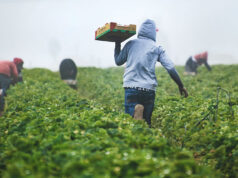
DAVAO CITY — The Pilipino Banana Growers and Exporters Association, Inc. (PBGEA) has asked the government to assist the industry after Japan implemented stricter tests for chemical residue in fruit imports.
Stephen A. Antig, PBGEA executive director, said in a news conference that the problem was first reported in August 2018 when Japanese inspectors found that some bananas from the Philippines contained Fipronil insecticide beyond the maximum residue limit (MRL).
These bananas were traced to two PBGEA members and other independent exporters, according to Mr. Antig.
Mr. Antig said while the Department of Agriculture’s (DA) Bureau of Plant Industry (BPI) sent a certification containing the names of cleared banana export companies, the Japanese government is still awaiting for an explanation of the assessment process and new protocols put in place.
“(The Japanese government) received the list of audited companies (who are supposed to be) compliant with Japanese standards, but they have not received any report on the process (of) how the companies were audited and selected to be in the list,” the PBGEA, through Mr. Antig, said in a March 20 letter addressed to DA Secretary Emmanuel F. Piñol.
Following the MRL violation, the Japanese government ordered 100% testing of all bananas from the Philippines instead of its previous practice of conducting sample inspections, Mr. Antig said.
He added that the longer process will particularly hurt the industry during the Golden Week holiday in Japan which runs from April 28 to May 6, when limited or no cargo inspections are expected.
“Even the Japanese traders are worried because they might not have bananas in the stores,” Mr. Antig said, noting that the Japanese market accounts for about 50% of the export production of PBGEA members.
George Y. Culaste, officer in charge of the BPI, said in an April 3 letter to PBGEA that the agency has “instituted corrective measures with the issuance of the new banana export protocol which now incorporated food safety.”
“However, our resources at BPI cannot meet the needs of the huge banana industry hence we rely heavily on monitoring and the premise that licensed exporters, packing facilities and registered growers are indeed compliant to the protocol,” Mr. Culaste said.
He noted that the Japanese government has sent 13 notifications so far to BPI and “it is very difficult to convince” them “that the corrective measures are deemed sufficient to lift the 100% mandatory MRL testing.”
Mr. Culaste said BPI will be submitting its comments to the latest set of questions. — Carmelito Q. Francisco



